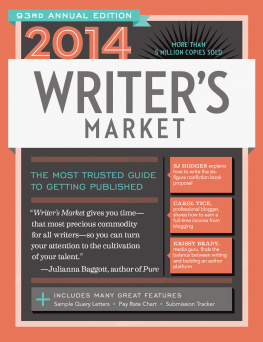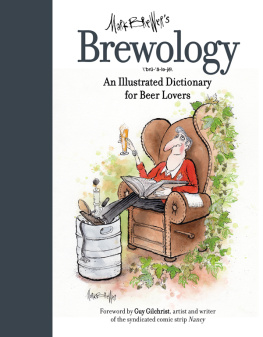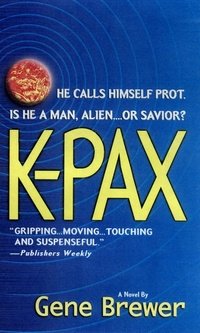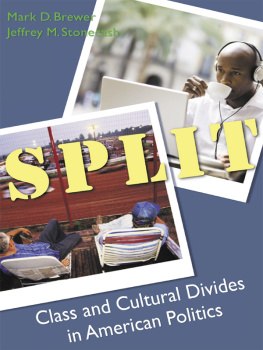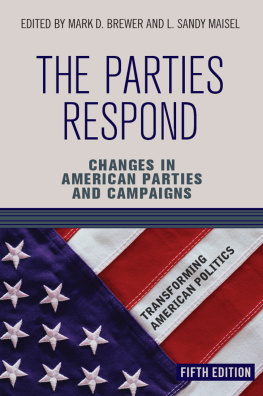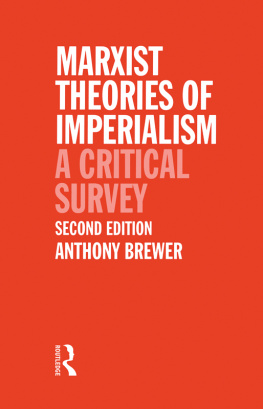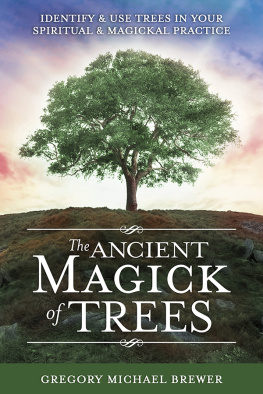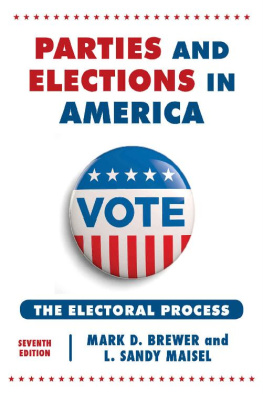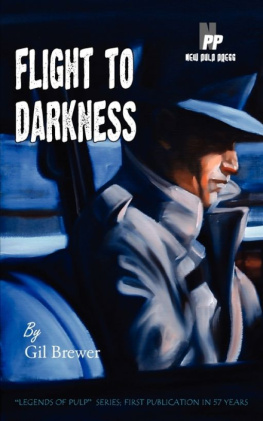Brewer - Why America Fights
Here you can read online Brewer - Why America Fights full text of the book (entire story) in english for free. Download pdf and epub, get meaning, cover and reviews about this ebook. City: USA, year: 2009, publisher: Oxford University Press, genre: Politics. Description of the work, (preface) as well as reviews are available. Best literature library LitArk.com created for fans of good reading and offers a wide selection of genres:
Romance novel
Science fiction
Adventure
Detective
Science
History
Home and family
Prose
Art
Politics
Computer
Non-fiction
Religion
Business
Children
Humor
Choose a favorite category and find really read worthwhile books. Enjoy immersion in the world of imagination, feel the emotions of the characters or learn something new for yourself, make an fascinating discovery.

Why America Fights: summary, description and annotation
We offer to read an annotation, description, summary or preface (depends on what the author of the book "Why America Fights" wrote himself). If you haven't found the necessary information about the book — write in the comments, we will try to find it.
Brewer: author's other books
Who wrote Why America Fights? Find out the surname, the name of the author of the book and a list of all author's works by series.
Why America Fights — read online for free the complete book (whole text) full work
Below is the text of the book, divided by pages. System saving the place of the last page read, allows you to conveniently read the book "Why America Fights" online for free, without having to search again every time where you left off. Put a bookmark, and you can go to the page where you finished reading at any time.
Font size:
Interval:
Bookmark:
WHY AMERICA FIGHTS
PATRIOTISM AND WAR PROPAGANDA FROM THE PHILIPPINES TO IRAQ
SUSAN A. BREWER


Oxford University Press, Inc., publishes works that further Oxford Universitys objective of excellence in research, scholarship, and education.
Oxford New York Auckland Cape Town Dar es Salaam Hong Kong Karachi Kuala Lumpur Madrid Melbourne Mexico City Nairobi New Delhi Shanghai Taipei Toronto
With offices in Argentina Austria Brazil Chile Czech Republic France Greece Guatemala Hungary Italy Japan Poland Portugal Singapore South Korea Switzerland Thailand Turkey Ukraine Vietnam
Copyright 2009 by Oxford University Press, Inc.
Published by Oxford University Press, Inc.
198 Madison Avenue, New York, NY 10016
www.oup.com
Oxford is a registered trademark of Oxford University Press.
All rights reserved. No part of this publication may be reproduced, stored in a retrieval system, or transmitted, in any form or by any means, electronic, mechanical, photocopying, recording, or otherwise, without the prior permission of Oxford University Press.
Library of Congress Cataloging-in-Publication Data
Brewer, Susan A. (Susan Ann), 1958
Why America fights : patriotism and war propaganda
from the Philippines to Iraq / Susan A. Brewer.
p. cm.
Includes bibliographical references and index.
ISBN 978-0-19-538135-1
1.United StatesForeign relations20th century.
2. Politics and warUnited StatesHistory20th century.
3. PatriotismUnited StatesHistory20th century.
4. Propaganda, AmericanHistory20th century. I. Title.
E744. B6977 2009 303.660973dc22 2008050360
1 3 5 7 9 8 6 4 2
Printed in the United States of America
on acid-free paper
To Bob
I first grasped the value of propaganda when it was time to pick up toys. As the eldest of four children who were allowed to make elaborate messes, I led the clean-up. With delight, I discovered that the effort went easier with music, Sousa marches or show tunes. Later, I became interested in the stories that Americans tell about their country and its role in the world. In particular, I was intrigued by the way the people in charge used patriotic versions of history to win support for their foreign policy, especially during wartime when so much was at stake. As any big sister knows, the power to manipulate can be used for good or nefarious purposes. I write this book for my brothers, sister, students, and anyone else who wants to understand how a nation can be inspired with truths and deceptions when it goes to war.
The research and writing of this book were made possible by generous fellowships and grants. My thanks to the Institute for Research in the Humanities at the University of WisconsinMadison, the National Endowment for the Humanities, and the University of WisconsinStevens Point University Personnel Development Committee. I am grateful to the splendid staffs at the National Archives for assistance with documents, still pictures, and motion picture, sound, and video records, the Library of Congress Manuscript Division and the Prints and Photographs Division, the John F. Kennedy Library, the Franklin D. Roosevelt Library, the Harry S. Truman Library, and the Wisconsin Historical Society. For resources from work in progress to silent films and Operation Enduring Freedom Trading Cards, I am grateful to Stephen Badsey, Laura Belmonte, Nick Cull, Leslie Midkiff DeBauche, Mitchell Hall, David Langbart, Neil Lewis, Chester Pach, John Regnier, Mitchell Robinson, Eric Rohmann, Mark Tolstedt, and Helena Vanhala. At the University of WisconsinStevens Point, I am beholden to my dedicated colleagues and engaged students, with a special thanks to research assistants Scott Butterfield, Clinton Huffmann, Amanda Lorge, and Chris Solberg. For their assistance, I thank Sandy Bauman, Rachel Mahoney, Doug Moore, Tom Reich, Jan Swinford, and Justin Thomas.
Why America Fights covers a lot of time and territory. I am deeply indebted to the outstanding work of scholars from many disciplines. In particular, I have benefited enormously from the wise counsel of Paul Boyer, Walter LaFeber, and William Skelton, who generously shared their expertise in cultural, diplomatic, and military history as they vigorously critiqued the entire manuscript. At conferences, I benefitted from the comments of Jim Baughman, Paul Boyer, Patricia Clavin, Lloyd Gardner, Chester Pach, Emily Rosenberg, and Robert Schulzinger. I am most fortunate to have insightful readers who reviewed all or parts of the manuscript, including Jim Baughman, Chris Bort, Scott Butterfield, Patricia Clavin, Leslie Midkiff DeBauche, Corinne Dempsey, Bob Erickson, Nick Garigliano, Anne Greer, Bruce Hall, Gene Kadish, Theresa Kaminski, Mary Statzer, and Greg Summers. I am grateful for the excellent support and careful reading of editor Susan Ferber at Oxford University Press. I thank Joellyn Ausanka for her skill and assistance during the production stage. Thanks to Thomas Schneider and Hans Wagener for the publication of a version of in Huns vs. Corned Beef : Representations of the Other in American and German Literature on World War I (Gttingen, Germany: V&R unipress, 2007).
I am grateful for the many kindnesses of my friends and family without whom I would not have completed this book. Candy Fleming and Eric Rohmann encouraged and advised me. For their hospitality and conversation, I thank Patricia Clavin, Linda Nemec, Chris Bort, Anne Greer, Steve DeJulio, and Marjorie Thompson. I thank my family, who with love has seen me through another elaborate mess. Finally, this book is dedicated to Bob Erickson, who never imagined he would watch so many war movies.
WHY AMERICA FIGHTS
The first casualty when war comes is truth.
Senator Hiram Johnson, 1917
ON THE FIRST ANNIVERSARY of the terrorist attacks of September 11, 2001, President George W. Bush launched a campaign to promote war against Iraq. We will not allow any terrorist or tyrant to threaten civilization with weapons of mass murder, he declared. The presidents prime-time speech was broadcast from Ellis Island where White House staffers had expertly staged the scene by illuminating the Statue of Liberty in the background. The previous day the attorney general raised the terror alert level to orange and the White House announced that Vice President Richard Cheney had spent the night at a secure, undisclosed location. Following the speech, the presidents top advisors appeared on television news shows to describe the immensity of the Iraqi threat. Secretary of Defense Donald Rumsfeld warned, Imagine a September 11 with weapons of mass destruction. Americans must go to war, announced officials, to secure their own safety, liberate the Iraqi people, and spread democracy in the Middle East.
In promoting Operation Iraqi Freedom, the Bush administration drew on a long history of government efforts to rally popular support for war. When Americans are called upon to fight, they want to know why Americans must kill and be killed. They expect their leaders to prove that war is right, necessary, and worth the sacrifice. This book explores the official presentation of war aims in six wars: the Philippine War, World War I, World War II, the Korean War, the Vietnam War, and the Iraq War. From William McKinley to George W. Bush, the chief message has been that Americans must defeat the enemy in order to create a safer, more prosperous world in which freedom and democracy will thrive.
Next pageFont size:
Interval:
Bookmark:
Similar books «Why America Fights»
Look at similar books to Why America Fights. We have selected literature similar in name and meaning in the hope of providing readers with more options to find new, interesting, not yet read works.
Discussion, reviews of the book Why America Fights and just readers' own opinions. Leave your comments, write what you think about the work, its meaning or the main characters. Specify what exactly you liked and what you didn't like, and why you think so.

